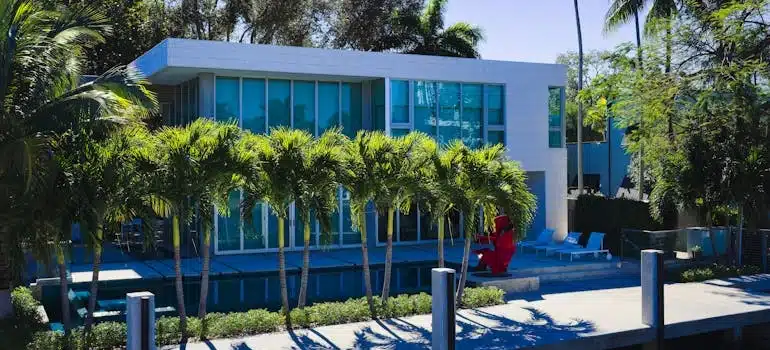When is the best time to buy a house in Fort Lauderdale
Buying a home is a major decision, and timing matters—especially in a popular market like Fort Lauderdale. This city’s mix of sunny beaches, waterfront homes, and urban amenities attracts buyers nationwide. If you’re planning to settle in southeast Florida on the Atlantic coast, you may wonder: When is the best time to buy a house in Fort Lauderdale? The answer depends on seasonal trends and current market conditions. This Pro Movers Miami guide explains how the time of year affects prices and inventory, covers today’s market challenges, and helps Florida residents and nationwide buyers find the best time to score a great deal in Fort Lauderdale.
Why timing matters in Fort Lauderdale real estate
Timing is important in real estate because market conditions fluctuate throughout the year. Across the U.S., the housing market tends to follow a seasonal pattern. Spring brings a surge of listings and buyers, while winter is typically the slowest period.
Florida is no exception. Even though the state doesn’t have harsh winters, it still sees lower home prices and buyer activity in late fall and winter. Of course, with more inventory hitting the market in spring and early summer.
Fort Lauderdale’s warm climate and status as a top destination for retirees, families, and remote workers mean house-hunting can happen year-round. However, despite many reasons to move to Fort Lauderdale, seasonal trends still influence prices and competition.
The 2024–2025 market presents new affordability issues
The market in 2024–2025 brings new challenges for buyers. Home prices in Florida are still near record highs. In Fort Lauderdale, the average home costs over $600K, which is above the state average.
Mortgage rates have also jumped. By mid-2025, a typical 30-year fixed mortgage in Florida sits around 6.6% to 7%, compared to under 3% just a few years ago. These higher rates make monthly payments much bigger and make it harder for many buyers to afford a home.
Insurance and taxes increase overall costs
Furthermore, Florida residents face steep insurance premiums (due to hurricane risk) and property taxes, which add to the cost of owning a home. With high prices, high rates, and insurance costs, buyers are understandably cautious. And thus, they are looking for any edge to save money, even at the best time to buy a house in Fort Lauderdale.
Smart timing can offer financial advantages
Amid these challenges, timing your purchase can help. Buying during a buyer-friendly season or market lull might mean lower prices or less competition, easing some financial pain. Conversely, buying at the wrong time (like when demand is frenzied) could force you to pay a premium or engage in bidding wars.

Seasonal trends in Fort Lauderdale real estate
Fort Lauderdale’s real estate activity rises and falls with the seasons, influenced by weather, tourism, and buyer behavior. Understanding these seasonal trends can help you anticipate home availability and pricing throughout the year.
Winter: best for bargain hunters
Winter (December through February) is usually the slowest time for home sales, and Fort Lauderdale follows this trend. Fewer buyers search during the holidays, and many sellers wait until spring to list. In Florida, winter is actually peak tourist season, so some homeowners rent to snowbirds or vacationers instead of selling.
This leads to less inventory but also less competition. If you find a home you like in winter, you might get a better deal. Historically, home prices drop in fall and winter—for instance, Florida’s median sale price was about $384,000 in December 2022, compared to over $409,000 in June 2023. That’s a clear dip during the winter slowdown.
Pros of buying in winter
Buyers face less competition and often find more room to negotiate on price. With fewer bidders in the market, sellers who list in winter are usually motivated. They may need to sell quickly due to job moves, financial reasons, or other factors. This often leads them to price their homes more attractively.
Winter months can offer good opportunities in Fort Lauderdale’s urban areas. Flexible sellers may offer deals, making the winter lull a chance for bargains. From the point of view of local movers in Florida, winter is off-peak. Since most families avoid moving during the school year, demand for movers is lower between late fall and early spring.
This means you could find better availability and possibly lower rates for moving companies during winter. Plus, South Florida’s mild winter weather—with comfortable temperatures and drier conditions—is ideal for moving. There is no scorching heat or hurricanes to worry about.
Cons of buying in winter
The main drawback is the limited selection. Many owners wait until spring to list, so fewer homes are available in winter. This means your choices will be narrower. You might not find the exact type of home or neighborhood you want during these months.
The holidays and shorter daylight hours can also shorten the home-shopping process. It’s a busy time to coordinate showings, and properties may not look their best when yards are out of bloom. If you want many options, winter may require extra patience.
Tourist season can boost housing demand, as some winter visitors decide to buy. However, this might make scheduling showings harder in vacation-heavy areas. For example, beachfront condos rented to seasonal visitors might not be available to tour until spring.
In summary, winter can favor buyers on price, as long as you’re okay with fewer listings and a slower pace.

Spring: peak inventory and competition
Spring is the busiest season for real estate in Fort Lauderdale. As the weather warms and the new year begins, many buyers enter the market. Most years, new listings flood in between March and May. Families plan to move with movers in Fort Lauderdale so they can settle before the next school year.
This creates peak inventory, giving buyers the widest choice of homes. You’ll find everything from beachside condos to suburban family houses. The pleasant spring weather also makes house hunting more enjoyable.
While it seems the best time to buy a house in Fort Lauderdale, there’s a downside. Competition is fierce. Spring is usually a seller’s market. Many buyers compete for attractive listings, which sell quickly. Bidding wars are common, and well-priced homes often go under contract in days.
In Fort Lauderdale, spring demand often drives prices to their yearly high. Buyers pay the highest premiums in spring. May can see prices about 10% higher than in other seasons. You must act quickly and be prepared.
Realtors recommend getting mortgage pre-approval and organizing your finances before shopping in spring. That way, you can make a strong offer immediately on a home you like.
Pros of buying in spring
The selection of homes peaks in spring. If you have a specific wish list—like a neighborhood or city close to Miami, school district, or home style—spring offers the best options. New listings arrive every week, so you might find your dream home during this season.
Longer daylight hours and spring open houses make it easier to visit many properties in Fort Lauderdale. For those moving from out of state with interstate moving companies in Miami, spring is a popular time to look. The weather is nice both up north and in Florida. If you’re renting, buying in spring can align well with a summer move when your lease ends.
Cons of buying in spring
High competition is the biggest downside. You’ll be up against many other buyers, which can drive up prices. Be prepared for potential bidding wars – offering above asking price, waiving some contingencies, or moving up closing dates might be necessary to win a home in spring.
The fast-paced market means you must decide quickly; there’s little time to “sleep on it” when a hot new listing appears. Also, because sellers know spring is prime time, they may be less flexible on price or repairs during negotiations. From a cost perspective, you’re likely paying top dollar in spring due to demand.
And remember that if you plan to hire a moving company, spring to early summer is peak moving season, so you’ll need to schedule movers well in advance (and possibly at higher rates).
In short, spring offers the most choice, but at a premium – both in price and competition level.

Summer: active market with unique challenges
Summer in Fort Lauderdale real estate extends the spring frenzy, especially in June and July. Many sales that started in spring close in summer. Families who missed out in spring may keep searching in early summer. The market stays active. June and July often have a large share of Florida’s yearly transactions, keeping agents busy.
Inventory from spring still carries over, but by mid-summer, new listings slow or decline. Sellers who haven’t sold by summer may start cutting prices, especially as August nears and buyers dwindle. By late summer (August to September), activity slows as focus shifts to the school year and fall routines.
Fort Lauderdale’s summer market is split: early summer (June, July) feels fast and competitive, while late summer (August) usually cools off. Florida weather is a key factor. Summer is the rainy hurricane season, with intense heat and humidity. Few enjoy moving in 95°F weather with afternoon storms. For comfort, some buyers prefer to finish purchases by early summer.
Hurricane season runs from June to November, peaking in August and September. Storm threats can pause inspections or insurance approvals. Major hurricanes may disrupt the market.
It doesn’t mean this can’t be the best time to buy a house in Fort Lauderdale, and you must avoid summer buying, but it’s a factor to consider. For example, getting homeowner’s insurance can be harder if a named storm is near.
Pros of buying in summer
Early summer still offers relatively high inventory and choices, especially for those who didn’t find something in spring. Sellers are often keen to close deals before the end of summer; a seller with a property still on the market in July might be more open to negotiation, particularly if the home has been listed for a couple of months.
Price reductions are not uncommon as summer progresses – a house listed in spring at an optimistic price may get reduced by August if it hasn’t sold, presenting opportunities for savvy buyers.
Also, if you have school-age children and need to move, buying in early summer allows you to settle in before the new school year begins, which is why many families target this timeline. Another advantage of late summer (August) is that moving demand starts to dip slightly compared to the June–July peak.
You might find it a bit easier to book residential movers in Miami at your ideal date toward the end of the summer. And despite the heat, summer days are long, giving you more daylight hours for house hunting and moving tasks.
Cons of buying in summer
Heat, weather, and logistical competition are the main challenges. Florida summers are famously hot and humid; attending open houses or doing home inspections on sweltering days can be exhausting, and you’ll want to ensure any home you consider has a robust cooling system.
There’s also the risk of tropical storms: if a hurricane threatens South Florida, the process could be delayed (banks and insurance companies often pause approvals when a storm is imminent).
Aside from weather, early summer maintains the spring level of buyer competition – you won’t see much relief in prices or bidding wars until later in the season. And as noted, summer is part of the peak moving season (May through September) in the moving industry.
This means movers are busiest and charging peak rates. It’s advisable to avoid end-of-month and weekend moves in summer, if possible, because most leases end then and demand for movers spikes at those times.
Overall, summer can be a fine time to buy if you find the right house, but be ready for hot weather and stay aware of the late-summer market slowdown that could work in your favor.

Fall: a window of opportunity for buyers
Fall (September through November) is often an underrated season for homebuyers in Fort Lauderdale. After the busy spring and summer months, the market cools down in early fall. Many families have already moved before school starts. Buyer competition drops noticeably as the holiday season nears. Sales volume dips by about 10–15% during the fall in Florida. This indicates fewer active buyers, giving some advantage back to buyers.
Fall is also when prices often start to ease from spring highs. October is one of the best months for buyers, with homes selling at only about a 3% premium over market value, compared to 10% or more in May. Florida follows this pattern, with prices dipping in late summer and early fall after peaking in late spring.
Some summer listings carry over into fall. If a home listed in July hasn’t sold by September, the seller may get anxious. Sellers become more motivated in fall, wanting to close before year-end.
They may worry that if they don’t sell by the holidays, they’ll have to wait until spring. So, they often accept offers more seriously. Price reductions or incentives, like covering closing costs, are common on older listings during fall.
The weather also improves in fall. Temperatures drop to comfortable levels by October, and hurricane season eases by November. House hunting becomes more pleasant, too.
Pros of buying in the fall
Fall can offer a balanced market for buyers, making fall the best time to buy a house in Fort Lauderdale price- and competition-wise.
There is still a reasonable amount of inventory (especially early fall, when late-summer listings are available), but with significantly less competition than spring. This gives you more breathing room to compare options and perhaps negotiate on price.
For first-time buyers or anyone frustrated by spring bidding wars, fall is a chance to re-enter the market on calmer terms. Moreover, if you’re looking for value, fall is arguably the best time – you’re likely to see homes at their lowest pricing of the year around November and December.
From a moving perspective, fall is part of the off-peak season, so moving services in Miami tend to have better availability and slightly lower rates than in summer. The weather is ideal for moving (cooler, drier), and you can schedule a relocation without the extreme rush of summer. All these factors make fall a sweet spot for many buyers who have flexibility in timing.
Cons of buying in the fall
One potential downside is reduced inventory compared to spring. By fall, the influx of new listings has slowed. While there are still homes for sale, you may not see as many fresh choices hitting the market every week. If you have very specific requirements, you might feel the selection is limited.
Another consideration is timing around the holidays – November and December can be hectic, and real estate activity slows further as people focus on family and festivities. If you haven’t found a home by mid-to-late fall, you might end up pausing your search until the new year. Also, any closing scheduled for late fall might bump into holiday-related delays with banks or title companies.
Lastly, though rare, early fall is still part of hurricane season; a big storm in September could temporarily disrupt the market or damage potential properties. On the whole, however, fall is considered an excellent time to buy in Fort Lauderdale if you’re looking for reasonable prices and a smoother buying process.

Navigating current market conditions in 2024–2025
While seasonal trends offer general guidance, current market conditions play a critical role in timing your Fort Lauderdale home purchase. Compared to the low inventory and seller-favored market during the pandemic boom, late 2024 and 2025 have seen significantly higher inventory levels.
This shift gives buyers more options and negotiation power. Factors like new condo safety regulations, rising insurance costs, and high mortgage rates have made buyers more cautious, causing homes to stay on the market longer and prices to cool modestly. This environment allows buyers to be patient and selective.
High mortgage rates and refinancing strategies
Mortgage rates remain high—around 6–7% for a 30-year fixed loan—raising monthly payments compared to the ultra-low rates of recent years. While rates may drop slightly in late 2024 or 2025, waiting could invite increased competition and higher prices. Many buyers choose to purchase now and refinance later if rates fall. It’s important to stay pre-approved and focus on affordability rather than trying to perfectly time rate changes.
Financial readiness over perfect timing
Affordability remains a challenge here, especially with Fort Lauderdale living costs. Ensure you have saved for a down payment, closing costs, and understand your monthly expenses, including taxes and insurance. Buying when financially ready often matters more than seasonal timing. Programs for first-time buyers or incentives from new developments may also provide opportunities throughout the year.
Insurance concerns and tax timing
Insurance factors and hurricane season also affect timing. Premiums can be high, and insurers may delay issuing policies during storms, potentially delaying closings. Property tax assessments occur at purchase, with bills issued in November. Closing early or late in the year affects tax proration and escrow, details that your agent or title company can explain.
Balancing market conditions with personal readiness
Overall, the market favors buyers more than in recent years, and deals can be found beyond just winter. Stay aware of interest rates, but buy when your finances and needs align. Fort Lauderdale’s market tends to appreciate over time, so the best purchase time balances market conditions with personal readiness.

Tips for making the most of your home-buying timeline
Timing your home purchase well can save you money and reduce stress. To make the most of your Fort Lauderdale home-buying journey, use these practical tips that help you stay prepared and flexible:
- Start early: Monitor Fort Lauderdale’s market months ahead. Track pricing and new listings to spot good deals fast.
- Get pre-approved: Secure mortgage pre-approval and organize funds early. This lets you act quickly when you find the right home.
- Consider total costs: Factor in interest rates, taxes, insurance, and seasonal maintenance, not just the listing price.
- Work with local experts: Use local real estate agents and movers who know Fort Lauderdale’s market and seasonal patterns well.
- Stay flexible: Be ready to adjust your timing or jump on unexpected opportunities. Don’t rigidly wait for a “perfect” month.
Following these steps can help you navigate the market more confidently and seize the best opportunities. Remember, the best time to buy is when you’re financially ready and find the right home that fits your needs.
When your Fort Lauderdale home-buying plans come together
The best time to buy a house in Fort Lauderdale depends on your goals. For lower prices and less competition, aim for fall or winter. For more options and inventory, spring and early summer are better. Today’s market is leaning in favor of buyers, with more inventory and modest price corrections.
Rather than chasing perfect timing, focus on readiness and market awareness. Buy when your finances are in place and the right home appears. Seasonal trends offer helpful guidance, but your personal situation matters most. With preparation, research, and flexibility, you can make a smart move in Fort Lauderdale, whether it’s in October or April.
